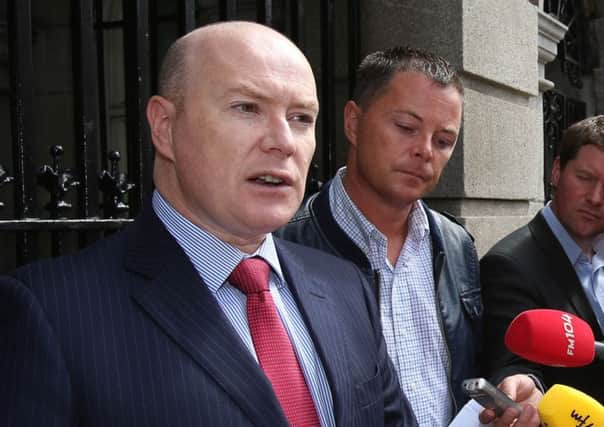Garda informer concerns '˜won't be addressed by Dublin legacy proposals'


Forty-eight-year-old Brian Stack was the chief prison officer in Portlaoise Prison when he was shot by the IRA after a boxing match in 1983. He died 18 months later.
In January his family accused the Garda of frustrating inquiries into his murder by withholding the identities of the gunman, a motorcyclist and the person who sanctioned the murder, in order to protect an informant.
Advertisement
Hide AdAdvertisement
Hide AdLast week Dubliner Dr Finian Fallon, whose father Garda Richard Fallon was also murdered by republicans, said his government’s proposals on dealing with the legacy of the Troubles are “meaningless”.
The Irish Department of Justice responded that it was fully committed to the proposed Stormont House Agreement (SHA) legacy bodies.
The DOJ said: “The Department of Foreign Affairs has led and maintains an ongoing process of contact, interaction and consultation with groups representing and advocating for the victims of Troubles-related violence and their relatives, both in regard to the process for implementation of the Stormont House Agreement framework and more broadly.
“Addressing the needs of the victims of Troubles-related violence remains a priority and these measures underpin the government’s full commitment to this process.”
Advertisement
Hide AdAdvertisement
Hide AdBut Mr Stack dismissed the comments: “Nothing new there, just the standard PR-type response. From a southern perspective there is really nothing in the SHA for us and we feel very badly let down by our government.”
He said there was “not a hope” of Dublin’s SHA proposals clearing up his difficulty in accessing the files he seeks.
“There is no Historical Investigations Unit proposed for the south and one of the biggest problems that we have with the SHA is that there is nothing for victims down here in it apart from the Independent Commission for Information Retrieval (ICIR). We actually feel like second-class citizens in relation to the whole SHA.
“Victims are not represented on the ICIR while ‘SF/IRA’ will be able to nominate one of the commissioners. Furthermore, victims will not be able to test the information given to them and I know from personal experience that information given by terrorists is never reliable.”
Advertisement
Hide AdAdvertisement
Hide AdUlster University politics lecturer Dr Cillian McGrattan agreed: “The Irish government’s position on dealing with the past remains wedded to abstract platitudes at the expense of practical and measurable commitments,” he said.
“It pledges support for the victims of ‘Troubles-related violence’ but ignores vast swathes of individual cases.
“The current proposals will effectively rule out any broader investigations into patterns uncovered by [academics] Patterson, Hennessey or Paddy Mulroe regarding Dublin links with the Provos.”